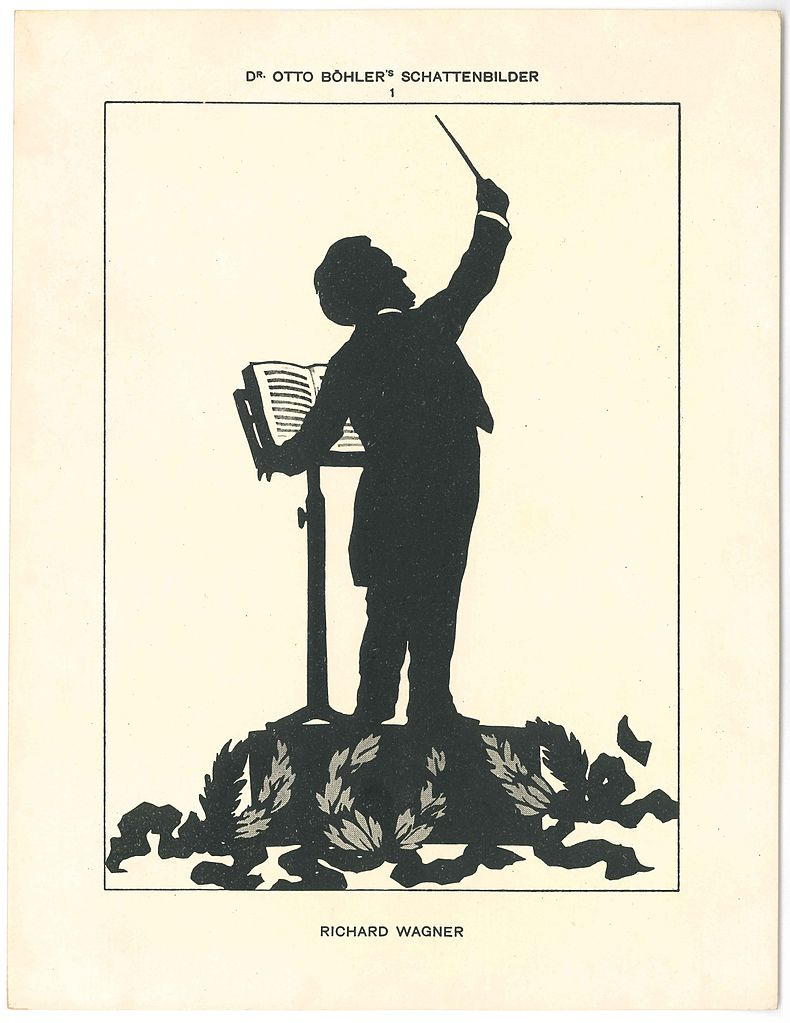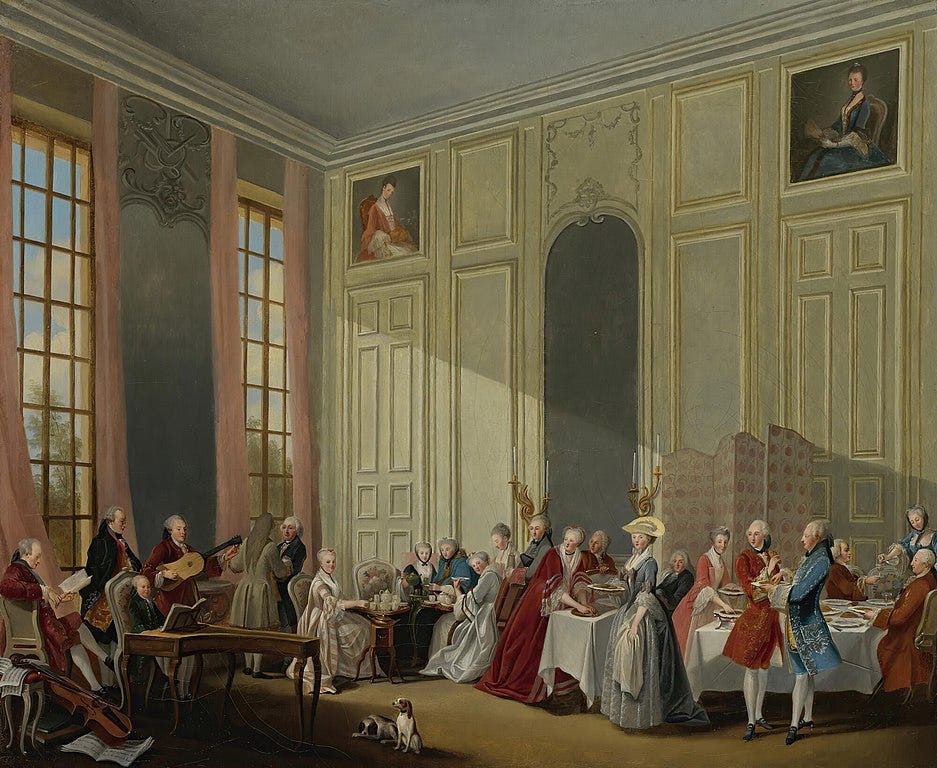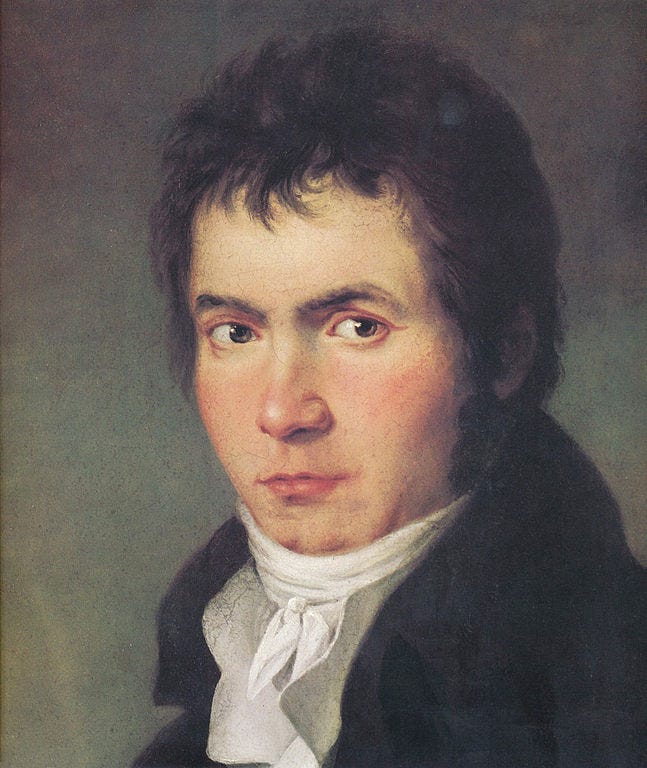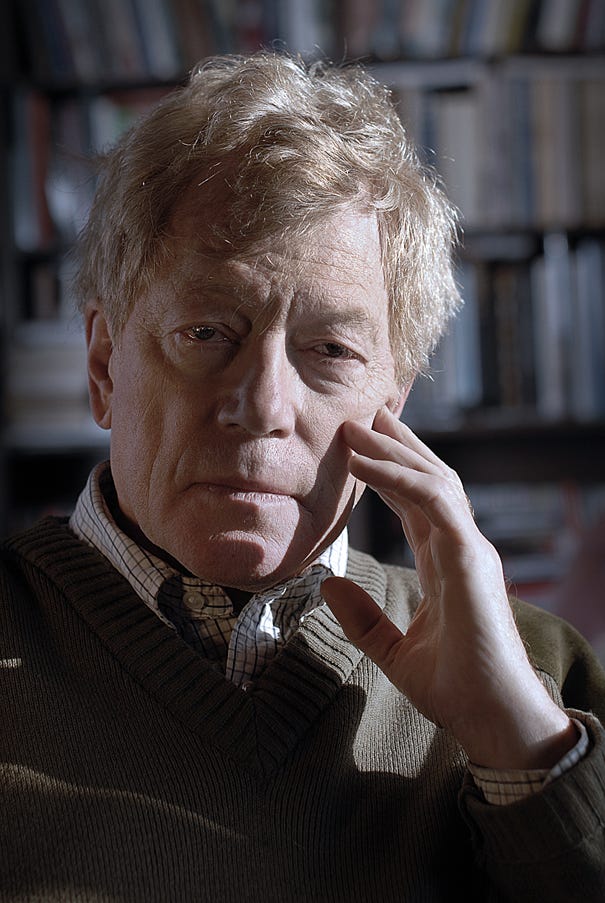Listen Carefully: Saving Classical Music From Itself
Revisiting the musical essays of the late, great, Sir Roger Scruton
Sir Roger Scruton wrote two operas and published six books on music during his life, three of which concerned Wagner’s operas, a subject about which he was irrepressibly passionate and as brilliant an analyst as any contemporary Wagnerian. Another book, 1997’s The Aesthetics of Music, is a landmark synthesis of philosophy and musicology. It is a rich and complex work, fully navigable perhaps only by those with a strong grounding in music theory, aesthetics, and philosophy. The layman listener is left with Scruton’s two published collections of musical essays, Understanding Music (2009), and Music as an Art (2018). Music became ever more important to Scruton as he aged, and it is telling that his pen turned more often to the musico-cultural as he entered his final years. It is these two books which should give the greatest heart to those who continue the fight to conserve classical music’s great tradition.
As Scruton reveals, this fight has not gone particularly well over the past century. Truth, beauty, and a sense of the divine are being extinguished from our shared musical palette; they have become victims of modernity’s anti-aesthetic march and the neo-marxist will to destroy. The avant-garde’s false promise and classical culture’s slovenly kitsch has dulled our ability to discern what real music actually is. One cannot read Scruton on music and remain deluded that if we simply carry on as we have, our children’s lives will be blessed by the artistic accomplishment that has shaped our civilization.
Sir Roger’s death in early 2020 may well have been merciful. Scruton was perhaps the most under-appreciated musical thinker of the early 21st century, and he thankfully was not here to witness classical music’s full descent into post-covid, post-George Floyd, and post-#metoo madness. The contemporary classical music world, now at the vanguard of high-culture wokeism, has enthusiastically followed the inclinations of the socio-political milieu in which its foremost practitioners tend to move. As elite Western ideological sensibilities have divorced themselves from all normality, so too have classical music’s mores. Covid brought us the war on everyday shared musical activity; music as a social activity was shut down. In the professional realm, there was the ludicrous sight of masked musicians playing to empty halls. Floyd and Black Lives Matter accelerated an existing trend toward empty racial virtue signaling in the (increasingly poor quality) programming orchestras champion most vociferously. Me-too endorsed a regime of so-called “positive discrimination”: several major orchestras now unapologetically advertise for female-only conducting roles, as major American newspapers giddily cheer them on. And now London, ever the symphonic world’s eternal city, has gone quite literally crazy: the Philharmonic now advertises for “neurodiverse” conductors, and the Sinfonia is commissioning new music “based on conversations with neurodivergent people.”
A sillouette of Richard Wagner by Dr. Otto Böhler, 1914. Wikimedia.
We can only speculate on what Sir Roger would have made of the present insanity. I suspect he would have nodded in agreement with the magnificent prose of The Manhattan Institute’s Heather Mac Donald. Mac Donald is certainly American conservatism’s most aggressive defender of the classical tradition, and perhaps also its most courageous. In 2021 she described an emergent “suicide pact” in classical music in a series of essays for New York’s City Journal.
Mac Donald frames the problem well: classical music has no future if it is determined to destroy the very inheritance that made it great in the first place. It is here, in recapturing that greatness, that Sir Roger’s evergreen essays can help. Scruton confidently identifies the generative sources of objective musical qualities, distills these qualities (and their antitheses) to their essences, and argues unashamedly for their revitalization. If they are read as widely as they should be, Understanding Music, and Music as an Art will form a curriculum for the willing and a starting point to reconnect with that truth, beauty, and divinity that is music’s great miracle and its enduring contemporary promise.
Understanding Music (2009)
As good philosophers do, Scruton devotes much time to definitions. Understanding Music’s first six chapters clarify how we experience music. Scruton goes to great lengths to explain what is human about that process, and helpfully draws the reader’s attention to the difference between animals that can merely hear sounds, and human beings who can make musical sense of those sounds. This critical point of discussion challenges the erroneous and oft-made assumption that musical understanding is a “naturally” occurring phenomenon, in the way that birds tweeting and waves crashing are in a sense, “musical.” In drawing this distinction, Scruton links the rational development of musical understanding with the rational development of human beings in our evolving civilization.
In this opening section there are further chapters on Wittgenstein and the philosophy of music; movement, and/or the perception of movement in music; and what constitutes musical expression. The truly revelatory moment however, lies in the chapter entitled “Rhythm.” Here is Scruton at his shining best, as he effortlessly draws together the threads of philosophy, musical performance, art history, and anthropology to explain the effect of rhythm and beat on the human condition. He illustrates how history’s greatest music draws on patterns which express the rhythm of lived experience. He contrasts this with the oppressive “invented,” or “superimposed” rhythms of avant-garde, pop, EDM, or simply shallow and unthinking compositions, and warns us of the deleterious effect such music has on our emotional faculties over time. This constitutes part of the inter-generational dulling of our artistic and spiritual instincts—a subject which Scruton has explored in his broader body of works, and which he believed posed a grave threat to human flourishing.
The second half of Understanding Music is devoted to case studies of composers, pieces, and music’s major thought-movements. The sections on Mozart and Beethoven are particularly moving. On the former, Scruton emphasizes Mozart’s embodiment of the enlightenment spirit. Scruton posits that his mode of musical discourse broadly reflects the project of the great modern philosophers. Like Rousseau, Kant, Locke, Smith, and Hume, Mozart, in his own musical language, perpetually holds up the individual to examination against society. By evaluating the man against the crowd, the Mozartian scheme, as Scruton says, is “sifting truth from falsehood.” Scruton is correct here, observably so to the everyday listener. Scruton singles out Mozart’s operas most conspicuously for attention, but the late piano concertos support his point even more emphatically. The final Rondo movement of the 23rd, for example, almost manically tests the veracity of its own musical ideas. Whether introduced by soloist or orchestra, Mozart engages his own music in a kind of Socratic dialogue, as one would imagine a master interrogating a precocious student’s whimsical offerings.
A young Mozart giving a concert in The salon Des Quatre-Glaces Au Palais Dutemple in the Court of the Prince de Conti. Michel-Barthélémy Ollivier, 1770. Wikimedia.
On Beethoven, Scruton performs the heroic feat of disentangling the 9th Symphony from the morass of contemporary critical claims against it. He is determined to extract the musical truth out of the cultural fallacy, and his critique rings with a strange hybrid Burkean-Kantian vigor:
[Beethoven] conceived the finale of the Ninth Symphony as an answer to the private and inward-directed emotions of the initial three movements, an answer which would turn the spirit once again outwards—not to a narrow community conceived, as the French revolutionaries had conceived it, in nationalist terms, but to the universal community of mankind.
Scruton also explores Central European music in Understanding Music. He effusively praises Janacek, Scriabin, and Szymanowski, whom he considers to be the Western tonal tradition’s true torchbearers from the 19th into the 20th centuries and cuttingly critiques Arnold Schoenberg and his great advocate, the cultural critic Theodor Adorno. In particular, he links Schoenberg’s 12-tone system and the hijacking of the classical tradition to the broader globalist project which sought to destroy local culture and community:
Schoenberg is not able to win through to the human heart, since the heart is fulfilled not by abstract laws or a universal culture but by the concrete customs of a community rooted in a place and time.
There are also two chapters dedicated to Wagner, where Scruton argues that the great ring-cycle operas represent the zenith of all human artistic achievement. Wagner, of course, has been a prime target for those who like to scream “Nazi!” at their political opponents since long before it became fashionable. It is undoubtable that Wagner held some repulsive, anti-Semitic views, but he was hardly the pre-Hitlerian monster caricature some historians paint. The Ring Cycle, contrary to the protestations of the noisier members of the peanut gallery, is not an anti-Semitic treatise; Scruton’s well-reasoned explanation of where Wagner’s anti-semitism ends, and where his sublime musical genius begins, is refreshing.
Music as an Art (2018)
Published in 2018, Music as an Art is a similar book to Understanding Music, albeit with one critical difference: the urgency of the writing. Clearly, in the decade that passed between the two, the fight for classical music has slipped further into confused chaos.
Ludwig van Beethoven. Detail of an 1804–05 portrait. Joseph Willibrord Mähler. Wikimedia.
For some context, in the past ten years, “woke” programming has infested North America and Europe’s orchestras. Musical quality has increasingly been taking a back seat to intersectionality and progressive musical statement-making. Scruton is writing at a time when there are more than passing suggestions of a return to unscreened auditions, in order to redress “racial and sexual injustices” in the constitutions of our leading music organizations. Further, many of our once-great conservatories are engaged in the wholesale trashing of the Western tonal tradition, with Brahms, Beethoven and Bruckner being ousted in the name of “decolonizing” the academy. In an episode at the University of Sydney in 2018, for example, I remember a group of composition students proposing a sheet be draped over the busts of the old masters displayed in the conservatorium library, in retribution for the alleged historical silencing of women and “people of color” composers. As Scruton’s own cover note makes clear:
We live at a critical time for classical music, and it is my hope that this book will contribute to the debate, of which we stand in need, concerning the place of music in Western civilisation.
As in Understanding Music, Music as an Art has six preliminary chapters which deal with the philosophy of music, before the rest of the book is devoted to musical case studies.
The chapters “When is a Tune,” and “Music and Cognitive Science” again try to frame the human experience of music, albeit in more sophisticated terms compared to Scruton’s earlier book. They are not easy chapters, especially for readers who have never studied music. Scruton’s attempt at defining melody is somewhat novel: the “when” in “When is a Tune” suggests that within any given series of tones, there will be an identifiable temporal balance point. The passing of this instance allows us to categorize mere notes as now substantially belonging to the gravitational center of a newly unified entity—the tune.”
Boulez’ piano sonata No. 3. The imperious Frenchman was the most domineering of post-war composers, but could much of his art be called “music”?
Scruton constructs his argument that music is a pillar of Western Civilization in the next series of chapters. In “Music and the Moral Life” he draws the reader to understand how music shapes personal virtue. Scruton proposes that when we listen deeply, we in essence “dance” internally in sympathy with a given musical work. If that work is imbued with a deeply noble character (say for example, an Elgar symphony), our listening can reach communion with nobility, shaping our own virtue in its image. If enough people listen deeply, then we can, as he says, “improve the moral temper of humanity.” In this way, he is a writer after Plato. Aural discrimination is implicit in Scruton’s argument, although he frames the issue more positively than Socrates does in Plato’s Republic: Socrates wants to stop children from listening to music which will make them bad. Scruton wants to encourage all citizens to listen to music which will make them good.
“Music and the Transcendental and German Idealism” and “The Philosophy of Music” show us how music can move us beyond what we perceive as everyday earthly experiences. These chapters explore some of Kant and Hegel’s ideas, and have a strong thematic link with much of the writing in Scruton’s 2012 book The Face of God.
Scruton advocates most strongly for Schubert, Britten, and the contemporary British composer David Matthews in the musical case studies he presents in this volume. These chapters are crucial reading for music students seeking to understand the present crisis of competence in classical composition. In a happier world, they would be required reading in any serious conservatoire curriculum. In them, Scruton connects the technical skill of harmonic composition to a philosophical exploration of human existence. This is a nearly impossible task, but Scruton accomplishes it with his trademark flair.
It is important here to understand why Roger Scruton was so unique an author on this subject. Vanishingly few people have ever simultaneously possessed Scruton’s skill in musical analysis and philosophical inquiry. We would have to go back to Nietzsche (himself a failed composer) or more likely, to Schopenhauer, to reliably find prominent authors with a comparable confluence of interdisciplinary abilities.
From this unique position, Scruton illustrates how a deep understanding of melody and harmony must be a composer’s foundation stone if he is concerned with uplifting humanity through art. As schools and universities increasingly turn away from disciplined teaching of harmony, rewarding students for mere sound-effects over real musical composition, Scruton shows us why teaching Western music’s melodic and harmonic roots is critical to its survival. Understanding the art of voice-leading (the complex process by which melody is combined coherently with harmony) is the cornerstone of Scruton’s argument. More pressingly, the issue is understanding why academies, both by design and default, are losing voice-leading, the true craftsman’s skill of harmonic authorship. The quest for effect is now preferred over the quest for affect via the dialectic process of working harmonic progression. Contemporary culture demands the shock of discombobulation, but true classicism prefers an artist’s grace when he is shockingly individualistic while also conforming to ancient principles of form and balance.
Sir Roger Scruton. Scrutopia.
Roger Scruton could fight like a savage whilst maintaining the air of a gentleman. His skill at deftly tackling ideological opponents gave his supporters great heart, and infuriated his adversaries. Among Scruton’s chief musical opponents are Arnold Schoenberg (1874 - 1951) and Pierre Boulez (1925 - 2016). Scruton handles Schoenberg in both books, but Boulez receives his own dedicated shellacking in the closing chapters of Music as an Art—and not before time. For decades, Boulez was an unapproachable figure, an uber-elite member of France’s artistic aristocracy. As a self described Marxist-Leninist for much of his career, he subscribed to that religion’s perverse destruction, making himself responsible for the evisceration of Western music’s sacred inheritance. Scruton exposes the damage Boulez has done to the common man’s confidence in serious music. He dismantles the Boulez legacy with clinical precision, exposing his fraudulent claim to music’s future, and highlighting the real and tangible harm done to classical music in his wake.
Roger Scruton was engaged in a fight for music that was, and still is, a vital one. We should be eternally grateful that he was willing to fight it. His passing remains a huge loss for the musical world, but we are lucky that he leaves behind the foundations of an argument for music and its place in Western Civilization in his writings. Understanding Music, and Music as an Art, in particular should be read, studied, and promoted by musicians, philosophers, students, teachers and interested listeners alike. Like so many of Scruton’s works, they provoke us to examine not just the subject matter at hand, but the very question of what it means to be human, and what it takes to reach fearlessly for the true, the good and the beautiful in our lives.










I just took out Music as Art from 2018. After attending a conference of classical musicians I’m also mind boggled at how one of guest professors was turning the learning of western music history into a woke shaming ritual. Thanks for this great overview of Scruton on music.